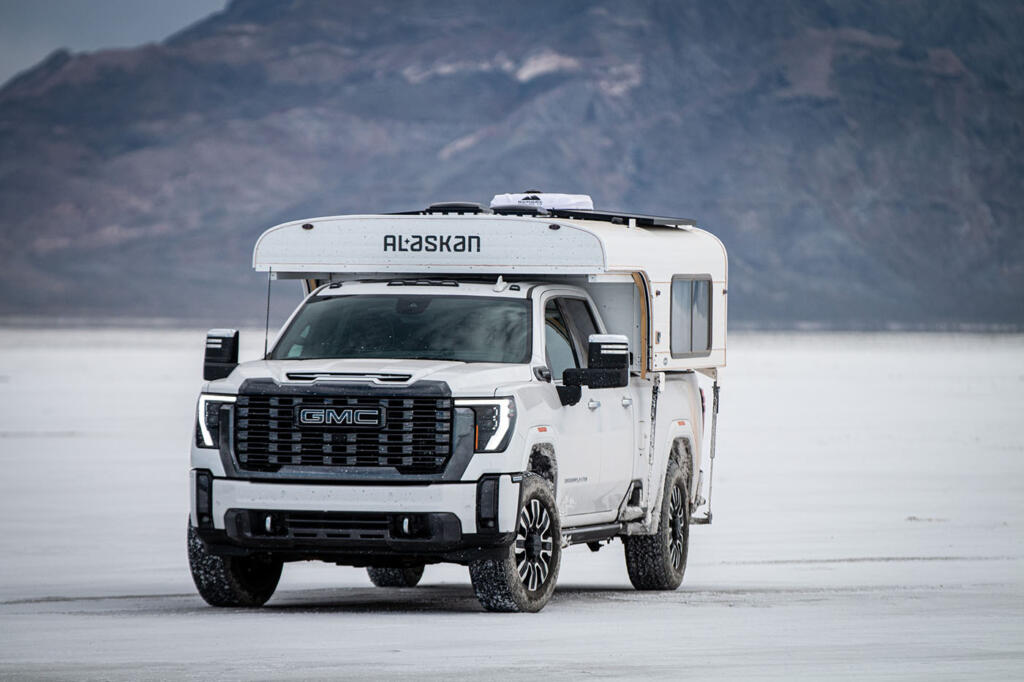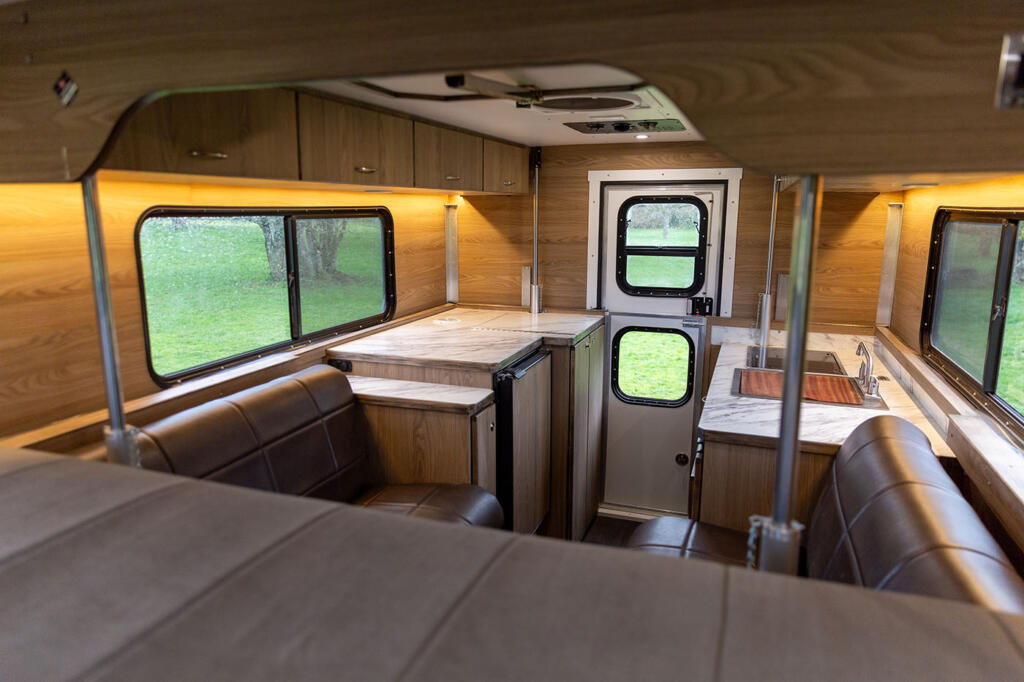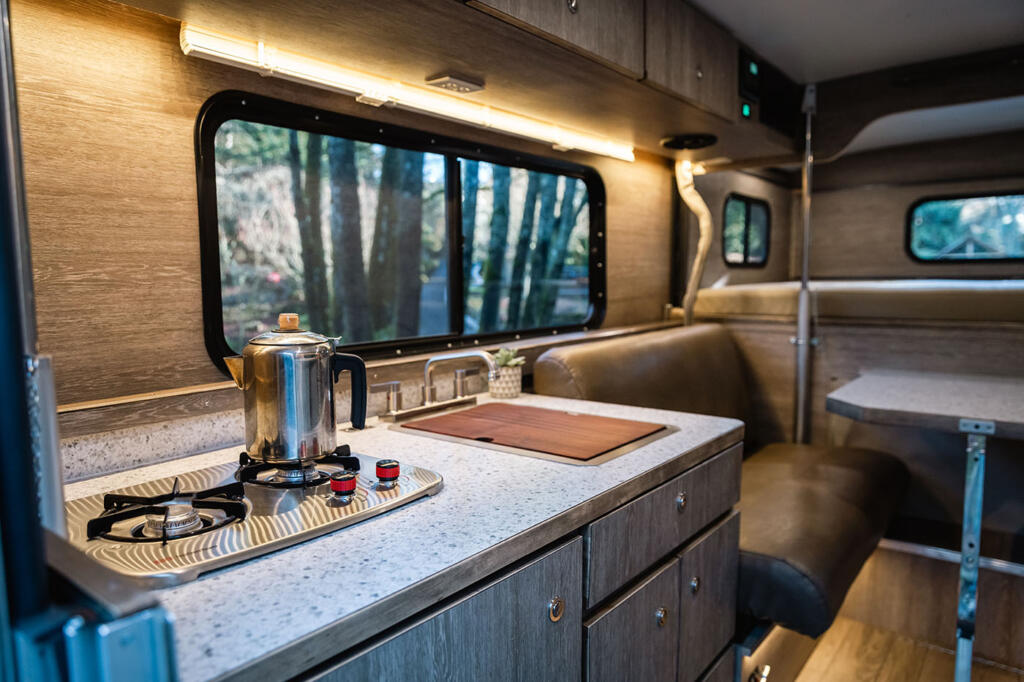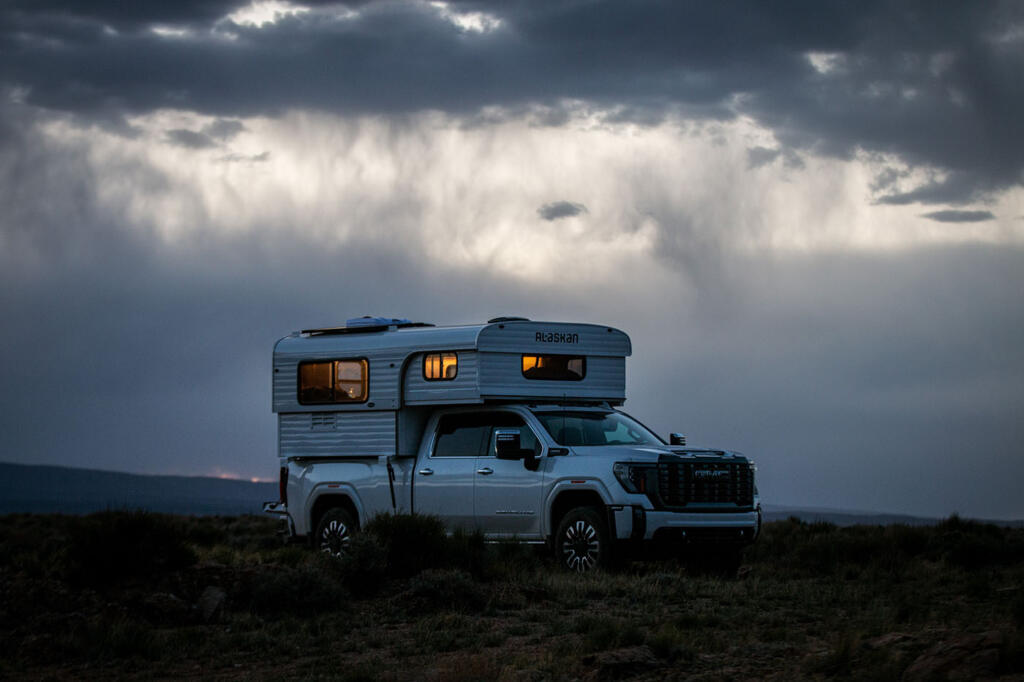With Hotel Costs Up—Give Us Driveways and Dirt Trails
As hotel and travel prices continue to rise post-pandemic, there has to be a better option.
Isn’t it funny how often camping gets compared to staying a hotel? (Maybe because we just Googled “camping vs. hotel costs”.) It’s like comparing apples to oranges, yet there’s a flood of resources tallying up lodging prices against the fuel costs of camping adventures. Let’s ditch the tedious charts and formulas touted by travel agents and the RV industry and instead, let’s talk about those real moments—when you’re not after luxury but simplicity, or when family obligations call. In these instances, parking your Alaskan camper in a driveway or on some public land isn’t just a cost-cutter; it’s a sanity-saver, bypassing all the usual travel chaos and expense.

Transportation
Mapping out a vacation involves more than just weighing costs; it’s about designing the whole travel experience. While flights can quickly become a major expense, particularly for families or groups influenced by timing and destination, hitting the road offers more than just savings. The allure of road-tripping, especially in an Alaskan Camper, begins an adventure the moment you pull out of your driveway.
Flying Costs: Beyond the Airfare
Flying might look straightforward, but there are several layers to consider beyond just the ticket price. Here’s what to think about:
Baggage and Extras: Airfare rarely covers all the essentials. Expect to pay for checked bags, seat selections, and possibly even meals on board. These additional costs can escalate quickly but might be offset with airline credit cards or elite statuses that offer perks like waived fees.
Group Travel Costs: The more people you travel with, the higher your costs will likely climb. This includes additional tickets and possibly more checked baggage.
Seat Upgrades: Upgrading your seat for more legroom or a better location can also add a significant amount to your travel expenses.
Pet Fees: Bringing a pet along? Airlines often charge extra for this, complicating both logistics and your budget.
Transportation Needs Upon Arrival: Unless you’re getting picked up, you’ll likely need to arrange for transportation once you land, whether it’s a rental car, taxi, or rideshare.
Holiday Travel: Flying during the holidays? Be prepared for crowded airports and potentially higher fares due to increased demand.
Accessibility and Convenience: Although air travel can transport you across vast distances quickly, it lacks the spontaneity and flexibility of a road trip. You are restricted by flight schedules, have to navigate airport security, and depend on the availability of local transportation when you arrive. These constraints can significantly influence the overall convenience and stress levels associated with air travel.
Driving Costs: Beyond the Gas
The road offers freedom, but it’s not free. The immediate thought is gas—how much will it cost not only to reach your destination but also to explore once you’re there? When planning a road trip, especially in a larger vehicle like an Alaskan Camper, it’s crucial to consider not only the current gas prices but also the additional travel time to your destination. Fortunately, you won’t have to worry about hotel stays but consider meal expenses. Also, don’t overlook the costs of toll roads and parking fees, which can accumulate quickly, particularly if you’re navigating through cities or visiting popular attractions.

Lodging
Hotels: Balancing Cost and Comfort
Since the COVID-19 pandemic, hotel prices in the United States have surged dramatically, with some destinations witnessing increases of over 50% compared to pre-pandemic levels. This price spike, as reported by Statista for 2023, reflects not just a rebound in the hospitality sector but also a surge in what’s known as “revenge travel.” After enduring long periods of lockdown, the pent-up demand has seen travelers eagerly returning to popular destinations, pushing average hotel costs to between $150 and $200 per night. This demand, coupled with staffing shortages, inflation, and a growing preference for more luxurious accommodations, means that even basic amenities like clean sheets and a swimming pool come at a premium. For those planning extended road trips, expenses can add up quick.
Alaskan Camping: Economical with a View
While the cost of a fully-equipped campsite in a national park during peak season might be comparable to a cheap hotel room, it’s rare to spend more than $50 per night for all the amenities. We suggest mixing up your accommodations, staying at modest roadside state parks or on BLM land, and splurging on the more crowded national park campgrounds only when necessary. Plus, many campsites offer stunning natural vistas—lakes, mountains, forests—right at your doorstep for far less than the cost of a hotel room with a comparable view. This, along with the privacy and direct access to nature, not only saves money but also greatly enriches any journey.

Meals
We all know that cooking at home is more budget-friendly than dining out—typically, a home-cooked meal costs around $5, whereas even a modest restaurant meal can set you back $20. It’s smart to travel with a well-stocked pantry and some outdoor cooking gear. We’ve covered camp kitchen setups and simple road-trip recipes in previous posts, so check those out. However, one tip we stand by is grabbing a good meal at a restaurant or brewery on your way to the campsite. This isn’t just convenient; it’s a tactical move. It boosts morale and fuels you for the labor-intensive setup that awaits. Let’s face it, the first day of camping often feels like a marathon—it’s demanding work that’s made a little easier with a full stomach.

Explore Further and Stay Longer
Well, surprise, surprise—we’re biased towards camping, again! But really, whether you’re rolling down the highway in your mobile abode or hanging in a hotel, each has its charm—and really are completely different vacations. The real win is grabbing the chance to dive deep into new experiences and linger a little longer in the places that captivate you. Sorry if that sounds a bit over the top or you began to roll your eyes—we promise we’re just genuinely enthusiastic, not trying to write a travel brochure.
